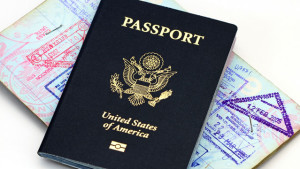Dear Liz: I had a problem last year and had no income so I couldn’t pay my bills for three months. I explained the situation to my creditors, but they still put the late payments on my credit reports. I called and sent letters, but it was no good: My credit score dropped to the mid-500s. How can I get the late payments taken off?
Answer: Last year, many lenders offered various kinds of hardship programs because of the pandemic. If you were approved for forbearance, the payments you missed should not have been reported as late. You could dispute the errors at the three credit bureaus (start at www.annualcreditreport.com) and ask the lenders to correct the record.
Unfortunately, lenders don’t always tell customers that forbearance or other hardship programs are available. If you weren’t given the option to enroll when you called to explain your problem, contact your lenders again, in writing, to point that out and request that the late payments be removed from your credit reports.
If a lender refuses to cooperate, consider making a complaint to the Consumer Financial Protection Bureau.
 Today’s top story: What Mastercard’s new Buy Now, Pay Later feature means for cardholders. Also in the news: How to find out if a destination is safe for travel, how the pandemic has changed the financial advice business, and how to get your credit card’s annual fee refunded.
Today’s top story: What Mastercard’s new Buy Now, Pay Later feature means for cardholders. Also in the news: How to find out if a destination is safe for travel, how the pandemic has changed the financial advice business, and how to get your credit card’s annual fee refunded. Today’s top story: How to bounce back from a credit card mistake. Also in the news: Why you should pack a travel guidebook even in 2021, 4 traits that helped small businesses survive the pandemic, and how charitable donations can earn you an added tax deduction this year.
Today’s top story: How to bounce back from a credit card mistake. Also in the news: Why you should pack a travel guidebook even in 2021, 4 traits that helped small businesses survive the pandemic, and how charitable donations can earn you an added tax deduction this year. Today’s top story: The pros and cons of selling your home to an iBuyer. Also in the news: A new episode of the Smart Money podcast on travel insurance and buying an electric car, 5 pandemic credit card habits to carry forward, and preparing your wedding budget for the reception resurgence.
Today’s top story: The pros and cons of selling your home to an iBuyer. Also in the news: A new episode of the Smart Money podcast on travel insurance and buying an electric car, 5 pandemic credit card habits to carry forward, and preparing your wedding budget for the reception resurgence.  Today’s top story: What Biden’s free college plan could mean for you. Also in the news: Overrated travel gear that you should (probably) never pack, what to do with extra money, and how to get a refund on federal student loan payments you made during the pandemic.
Today’s top story: What Biden’s free college plan could mean for you. Also in the news: Overrated travel gear that you should (probably) never pack, what to do with extra money, and how to get a refund on federal student loan payments you made during the pandemic.